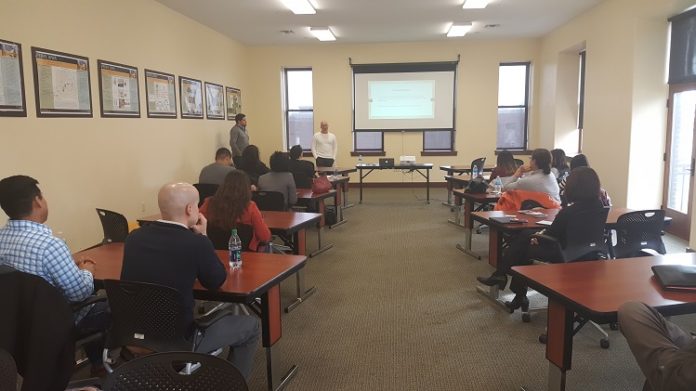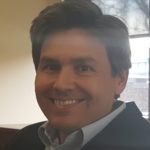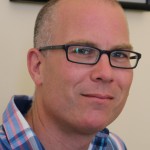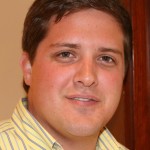
There are about 7,500 local elected offices across Iowa — below the state legislature — ranging from county offices and city positions to school board seats and township trusts. How many of these offices are held by Latinos?
The answer is 16. In other words, Hispanic Iowans fill about two of every 1,000 elected offices.
Since the population of Iowa is roughly 5 percent Hispanic, according to a 2014 study by the Pew Research Center, it is fair to say that Hispanics are underrepresented in local politics in Iowa.

Understanding and changing the social and political dynamics behind these numbers was one of the goals at the meeting of the Latino Political Network (LPN) Saturday afternoon at the Center for Towncraft in Perry, according to Rob Barron of Des Moines, co-founder of the LPN.
Barron, in his fourth year on the Des Moines School Board, said the LPN is a non-partisan, non-profit organization aiming to increase Latino representation in local elected offices. About 15 people attended Saturday’s workshop.
“I think we get the best possible government out of the most possible participation,” Barron said, “which is why we’re here encouraging more Latinos to run for office, to inspire their community to get engaged, to voters to get active. If they can’t vote, then to get engaged with your neighbors talking about why certain issues are important. That makes a community a lot stronger if you’re civically engaged.”
Barron said a large part of the reason why Hispanics in Iowa do not hold elected office is because a political culture has not yet taken root in the Hispanic community, so mentors are largely absent.
“If you’re part of a community that hasn’t been politically engaged,” he said, “and doesn’t have political leaders from within that community, then you might not have that person that you can go to right away to help shepherd you through the process, and the reason why we formed the LPN is to try to put the message out to people, ‘Hey, listen, there’s an entity out here that will give you that advice, that will work with you, that will mentor you to help you to get there.’ Because until we have 160 instead of 16, we can’t anticipate or expect that there’s going to be mentors for people who just pop up organically.”

Omar Padilla also organizes for LPN and founded the group with Barron about two years ago. The mission of LPN is “to diversify our government at all levels,” Padilla said. “However, most of the offices that we’re training people for are really local offices. They’re school boards and city councils, non-partisan offices.”
Padilla said the LPN is committed to a long-term investment in Latino political engagement in Iowa.
“The people who are going through our workshops are the people who are going to be in office in the next decade,” he said. “They are going to really bring us around. I’m a sincere believer of that. I don’t expect any of our attendees to become the governor of Iowa next year or two years from now, but if we can get enough people into school boards and city councils, I think we can make a big impact at the local levels.”
Padilla said the “goal is to bring this training to every corner of the state.” Previous workshops have been held in Des Moines, Ankeny, Storm Lake and Iowa City, he said, with Cedar Rapids on the horizon in a few weeks.
LPN has also established a partnership with the Latina Leadership Initiative, and three interns from that professional group will facilitate LPN workshops in Storm Lake and Iowa City. Mentorship is a large part of the LPN process, Padilla said.
“We can bring together Latino elected officials from around the state and mentor each other,” he said. “We’ve discovered that there are so few people from the Latino community in public office that there’s a big sense of isolation. So we’re trying to help those individuals from Denison and Storm Lake and Perry meet each other and learn from each and be resources for each other because there might not be a big history or cultural knowledge about political offices. We really need to learn from each other.”

As part of Saturday’s workshop in Perry, Jon Wolseth, Latino business and community development specialist at Iowa State University Extension and Outreach, discussed strategies for developing connections in the community.
Wolseth, winner of the 2016 Early Achievement in Extension or Professional Practice Award from ISU, works in cities across central and western Iowa and testified to the importance of knowing the right people and organizations in the community in order to get things done, whether it is starting a small business or mounting a campaign for the school board.

Perry City Administrator Sven Peterson shared his perspective on local politics from the side of municipal government. Peterson noted the great number of boards and commissions in every town and the occasional difficulty in finding volunteers to fill their seats.
Peterson said greater diversity on boards and commissions, as well as city councils, would benefit the community as a whole. He said it is not that the boards and commissions are closed to minority membership, but sometimes people simply are not aware of opportunities, and the boards and commissions themselves sometimes do not outreach and recruit widely enough to reach everyone in the community.
For more information about the Latino Political Network, visit the LPN website.
















